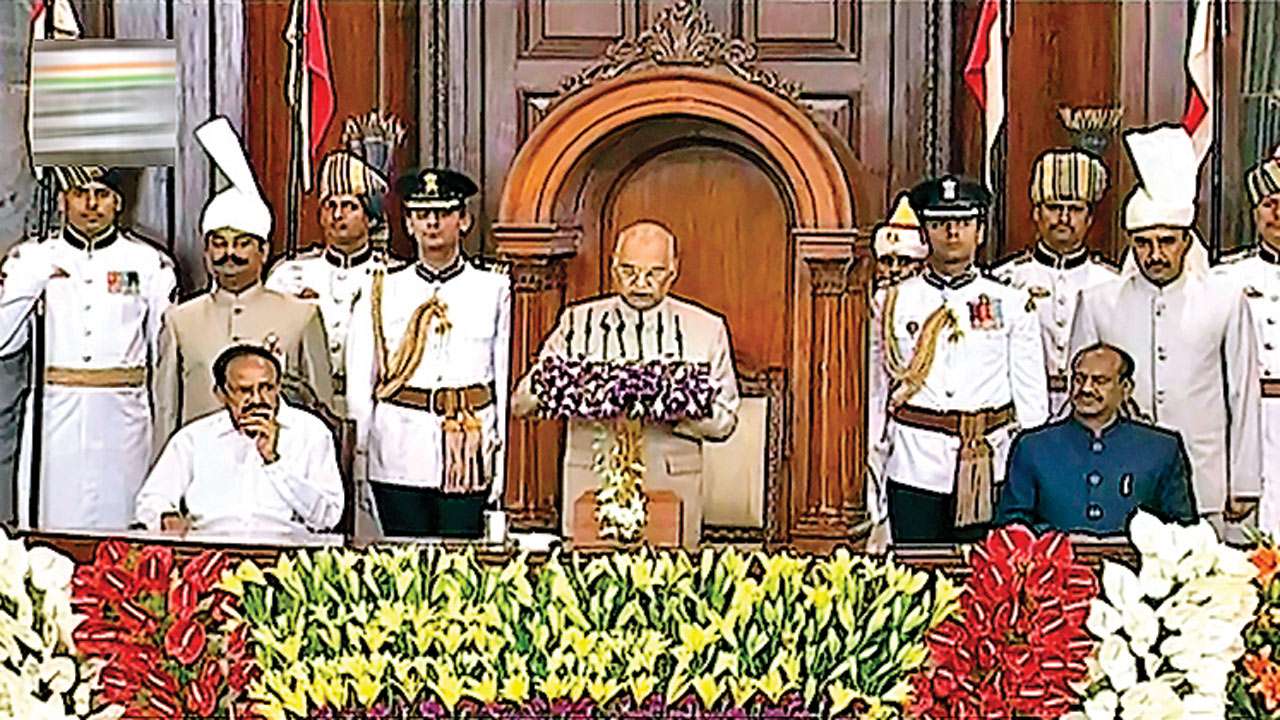
Despite resistance shown by several political parties, Modi government seemed to have made up its mind to push through the contentious agenda of 'One Nation One Election' as President Kovind in his address specifically urged all MPs to seriously ponder over development oriented proposal.
Making a strong pitch for Prime Minister Narendra Modi's idea, President Kovind said, "One Nation – Simultaneous Elections' is the need of the hour, which would facilitate accelerated development, thereby benefiting our countrymen."
"With such a system in place, all political parties, according to their respective ideologies, will be able to better utilise their energy towards development and public welfare. Therefore, I urge all Members of Parliament to seriously ponder over this development oriented proposal of 'One Nation - Simultaneous Elections'," he said explaining how in past few decades the pace of development has been impacted due to frequent elections.
However, given the resistance of a large number of Opposition parties and some NDA partners like the Shiv Sena too, which apprehend that it is a movement towards Presidential form of government, the Modi government may have to wait for a longer period to build a consensus.
To put the idea in practice also requires massive constitutional amendments and would require compulsory clearance in the Rajya Sabha and the government can have a majority in the Rajya Sabha only after April 2020.
According to Law Commission's draft working paper, it would involve amendments to Article 83, Article 85, Article 172, Article 174, Article 356 and the Tenth schedule of the Constitution and to RPA, 1951, Rules of Procedure of Lok Sabha and Vidhan Sabha.
Moreover, these amendments can still be legally challenged as the 13 judge bench of Supreme Court in Kesavananada Bharati case clearly rules out any changes in the "basic structure of the Constitution".
According to experts like former chief election commissioner, the idea is fraught with several unanswered question such as how simultaneous elections will work in case the Lok Sabha or a state assembly is prematurely dissolved and will all state assemblies go to the polls again?
Moreover many experts like Prof. Jagdish Chhokar, founder- member of ADR and retired Professor of IIMA, don't agree with the argument that development works come to a standstill during frequent elections. They say that the model code of conduct applied by the Election Commission only disallows announcements that can seduce voters and in any case any incumbent government takes prior permission of the Commission for specific people oriented development work.